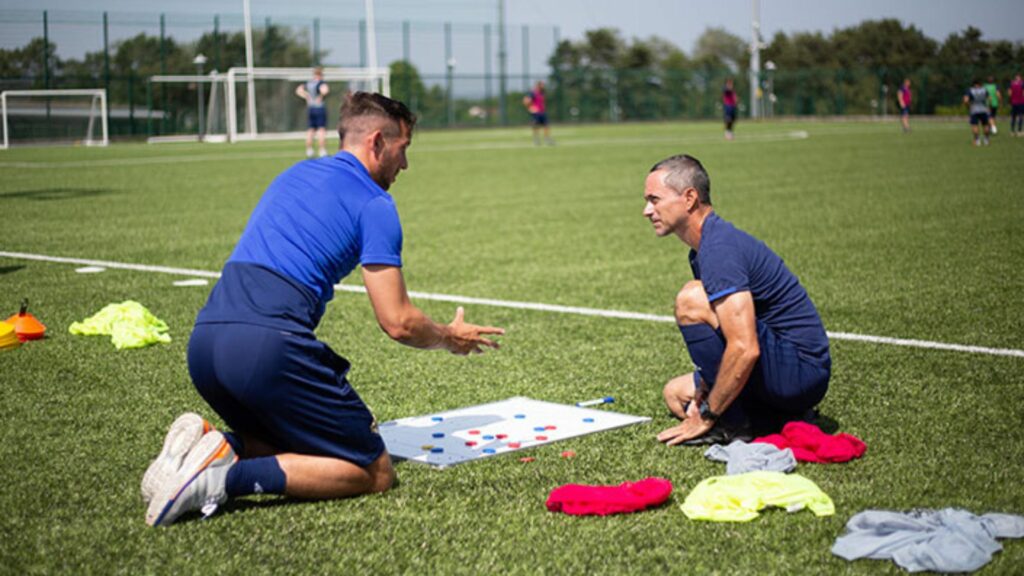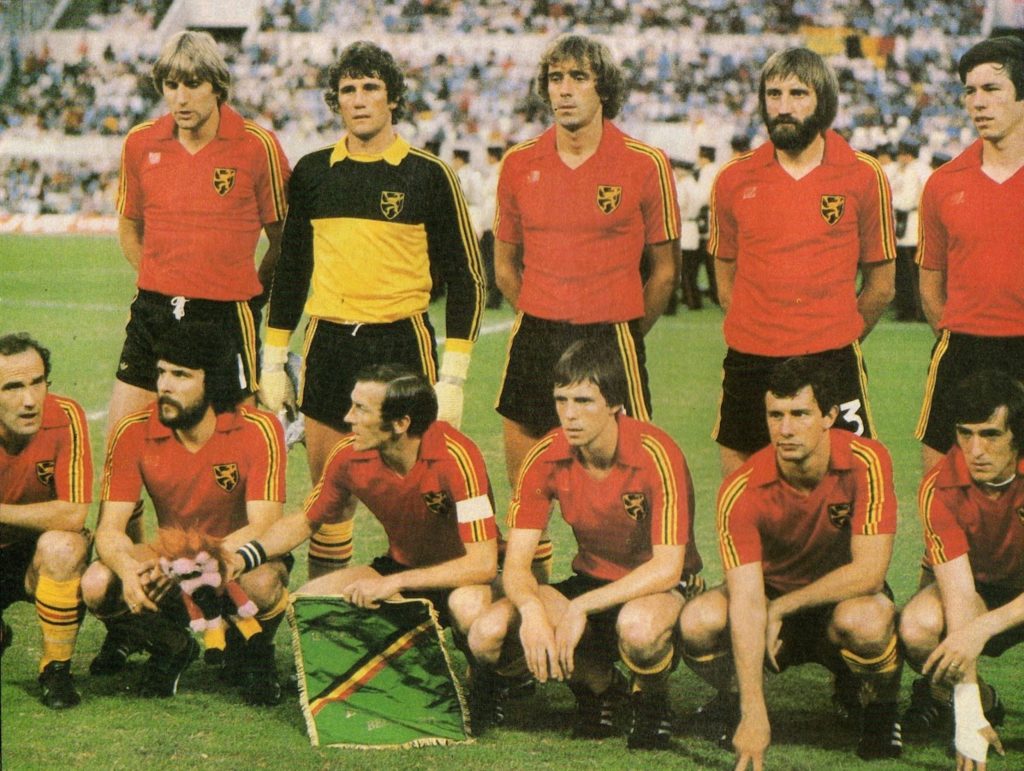“Football Coaching Strategies in Belgium
Related Articles Football Coaching Strategies in Belgium
Football Coaching Strategies in Belgium

Belgium has emerged as a prominent force in the world of football, captivating fans with its dynamic and innovative playing style. This success is not merely a matter of luck but a result of meticulous planning, strategic coaching, and a commitment to developing talent from a young age. In this article, we delve into the football coaching strategies that have propelled Belgium to the forefront of international football.
A Holistic Approach to Player Development
At the heart of Belgian football coaching lies a holistic approach to player development, emphasizing technical skills, tactical awareness, physical conditioning, and mental fortitude. Coaches in Belgium recognize that a well-rounded player is more likely to succeed in the demanding world of professional football.
- Technical Proficiency: Belgian coaches prioritize the development of fundamental technical skills, such as passing, dribbling, shooting, and ball control. Young players are encouraged to master these skills through repetitive drills and game-like scenarios.
- Tactical Acumen: Tactical awareness is another crucial aspect of Belgian football coaching. Players are taught to understand different formations, strategies, and game situations. They are encouraged to make intelligent decisions on the field, adapting to the flow of the game.
- Physical Fitness: Physical conditioning is an integral part of Belgian football coaching. Players undergo rigorous training programs to enhance their strength, speed, agility, and endurance. Coaches work closely with sports scientists and medical professionals to ensure that players are in peak physical condition.
- Mental Strength: Mental toughness is increasingly recognized as a key factor in football success. Belgian coaches incorporate mental training techniques into their programs, helping players develop resilience, focus, and confidence.
Emphasis on Youth Development
Belgium’s success in football can be attributed to its unwavering commitment to youth development. The country has invested heavily in youth academies and coaching programs, creating a pipeline of talented players.
- Grassroots Programs: Belgium has a well-established network of grassroots football programs, providing young players with access to quality coaching and facilities. These programs focus on developing fundamental skills and fostering a love for the game.
- Youth Academies: Belgian football clubs operate state-of-the-art youth academies, where promising young players receive intensive training and education. These academies follow a structured curriculum, designed to develop players’ technical, tactical, physical, and mental abilities.
- National Youth Teams: Belgium has a comprehensive system of national youth teams, providing young players with the opportunity to represent their country on the international stage. These teams compete in various tournaments and championships, giving players valuable experience and exposure.
![]()
Adoption of Modern Coaching Methodologies
Belgian football coaches have embraced modern coaching methodologies, incorporating the latest scientific research and best practices into their training programs.
- Periodization: Periodization is a systematic approach to training that involves dividing the season into different phases, each with specific goals and objectives. Belgian coaches use periodization to optimize players’ performance and prevent injuries.
- Data Analysis: Data analysis is increasingly used in Belgian football to gain insights into players’ performance and identify areas for improvement. Coaches use data to track players’ movements, passing accuracy, and other key metrics.
- Video Analysis: Video analysis is another valuable tool used by Belgian coaches. They use video to review players’ performances, identify tactical errors, and provide feedback.
Influence of Foreign Coaches and Philosophies
Belgium’s football coaching landscape has been significantly influenced by foreign coaches and philosophies. Many Belgian coaches have traveled abroad to learn from the best in the world, bringing back new ideas and techniques.
- Dutch Influence: Dutch football has had a profound impact on Belgian football. Many Belgian coaches have studied the Dutch model of total football, which emphasizes possession, movement, and attacking play.
- Spanish Influence: Spanish football has also influenced Belgian football. Belgian coaches have adopted the Spanish emphasis on technical skills, tactical awareness, and possession-based football.
- German Influence: German football has influenced Belgian football with its emphasis on discipline, organization, and tactical flexibility.
Key Coaching Figures in Belgian Football
Belgium has produced a number of influential football coaches who have played a key role in the country’s success.
- Roberto Martinez: Roberto Martinez, the former manager of the Belgian national team, is widely credited with transforming the team into a world-class side. He instilled a clear tactical philosophy, fostered a positive team environment, and got the best out of his players.
- Michel Preud’homme: Michel Preud’homme is a highly respected Belgian coach who has managed several top clubs in Belgium and abroad. He is known for his tactical acumen, his ability to develop young players, and his passion for the game.
- Hugo Broos: Hugo Broos is another successful Belgian coach who has managed several clubs in Belgium and abroad. He is known for his defensive organization, his tactical flexibility, and his ability to motivate players.
Challenges and Future Directions
Despite its success, Belgian football faces several challenges.
- Maintaining Momentum: Belgium needs to continue investing in youth development and coaching education to maintain its position as a leading football nation.
- Adapting to Change: The world of football is constantly evolving, and Belgium needs to adapt to new trends and technologies to stay ahead of the competition.
- Promoting Diversity: Belgian football needs to promote diversity at all levels of the game, ensuring that everyone has the opportunity to participate and succeed.
Conclusion
Football coaching strategies in Belgium have played a pivotal role in the nation’s rise to prominence in the world of football. A holistic approach to player development, emphasis on youth development, adoption of modern coaching methodologies, and the influence of foreign coaches and philosophies have all contributed to Belgium’s success. As Belgian football continues to evolve, it is crucial to address the challenges and embrace the future directions to maintain its position as a leading football nation.

